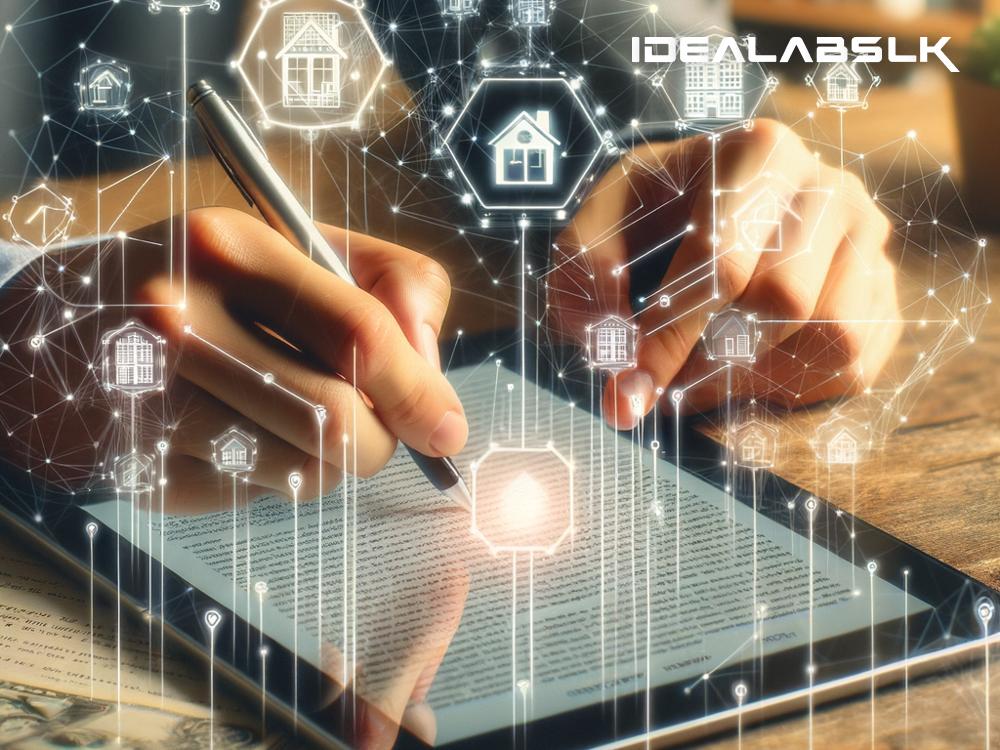Blockchain for Real Estate: Transforming Property Transactions with Digital Contracts
In today’s fast-paced world, the real estate market is ripe for innovation. Transactions involving property sales and rentals are often bogged down by lengthy processes, piles of paperwork, and an ever-present risk of fraud. Enter blockchain technology - a digital ledger that is shared, immutable, and highly secure. This revolutionary technology is set to transform the real estate sector by streamlining property transactions through digital contracts. Let's explore how blockchain is making the buying, selling, and renting of properties simpler and more transparent than ever before.
What is Blockchain?
Think of blockchain as a digital notebook that securely stores information across a network of computers. This means no single entity controls the data, making it transparent and virtually immune to tampering. Each “block” of information is linked to the previous one, creating a “chain.” This is especially useful in real estate transactions, where trust and security are paramount.
Digital Contracts: The Heart of Blockchain Real Estate
At the core of blockchain's application in real estate are digital contracts, also known as smart contracts. These are self-executing contracts with the terms of the agreement directly written into code. When conditions are met, the contract automatically enforces itself. For example, when a buyer completes a payment, the ownership of the property can be instantly transferred to them, without the need for middlemen.
The Impact on Property Sales
Blockchain is set to radically transform how we buy and sell property. Here’s how:
-
Speedy Transactions: The conventional process of buying a home can take months, filled with paperwork and red tape. Blockchain technology simplifies and speeds up the process by cutting out intermediaries like lawyers and banks. Transactions that used to take weeks can now be completed in a matter of days or even hours.
-
Reduced Costs: By eliminating the middlemen, blockchain significantly lowers the costs associated with property transactions, including fees for legal services, bank charges, and other administrative fees.
-
Enhanced Security: The decentralized nature of blockchain and its encryption methods make it extremely difficult for fraudsters to tamper with property records. This reduces the risk of identity theft and fraudulent transactions.
-
Increased Transparency: Every transaction on the blockchain is recorded and can be viewed by anyone on the network, ensuring all parties have access to the same information and can trace the transaction history of a property with ease.
The Future of Rentals
Blockchain is not just revolutionizing property sales; it’s also transforming the rental market:
-
Streamlined Leasing Process: Just as with property sales, blockchain can simplify the rental process. Smart contracts can automate tasks, such as credit checks, and ensure the lease agreement is executed instantly once conditions are met.
-
Improved Trust Between Parties: With blockchain, landlords and tenants have access to a transparent transaction history of the property. This builds trust, as both parties can verify information like past rental prices and the timeliness of payments.
-
Efficient Property Management: Blockchain allows for more efficient management of rental properties. Payments can be automated and securely processed via the blockchain, reducing the risk of late payments. Maintenance requests can also be tracked and managed through smart contracts.
Overcoming Challenges
Despite its potential, blockchain in real estate is not without challenges. Regulatory hurdles, limited understanding, and acceptance among real estate professionals, and the need for a more robust infrastructure are some of the obstacles facing blockchain adoption. However, as technology advances and these issues are addressed, the integration of blockchain into real estate becomes increasingly feasible.
The Road Ahead
The application of blockchain in real estate is still in its infancy, but the potential is enormous. We are already seeing initiatives and startups pioneering the use of blockchain for property transactions, indicating a promising future. As more people recognize the benefits of blockchain—enhanced security, reduced costs, and increased efficiency—it's set to become a fundamental part of the real estate industry.
The integration of blockchain into real estate represents a significant leap forward, promising to make the buying, selling, and renting of properties more streamlined and transparent. By harnessing the power of digital contracts, the real estate market is poised to become more accessible and efficient, marking an exciting new chapter in property transactions. As we move forward, one thing is clear: blockchain technology is not just a passing trend; it's the future of real estate.

